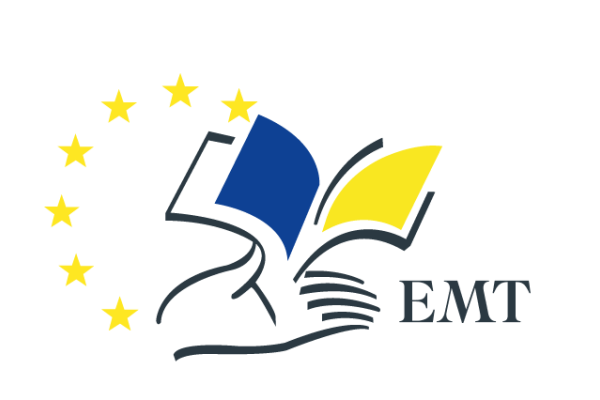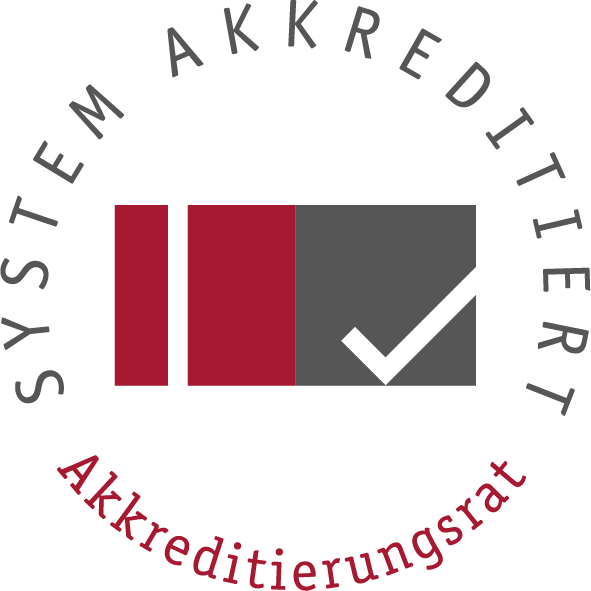Translation Science and Technology (M.A.)

The demand for well qualified translators in Europe is growing continuously. In addition to providing students with a solid academic training, the M.A. programme 'Translation Science and Technology' teaches students the methods and techniques that are needed both by those choosing to pursue a professional career in translation and by those planning to continue with doctoral level research and a career in academia. The closely integrated approach that combines education and training in translation studies and in language technologies is a key feature of the Master's degree programme and makes the programme unique in Germany. The international double degree programme in cooperation with universities in Spain and Italy offers students further opportunities.
The M.A. programme focuses particularly on new methodologies in language technology and on empirical research. Graduates are well qualified for modern work processes involving multilingual communication. In addition, students on the programme receive intensive training in the research methods currently used in empirical language and translation science.
Two other key aspects of the M.A. programme are interdisciplinarity and a strong emphasis on practical applications. General linguistics, corpus linguistics and computer linguistics are all part of the course, as are compulsory modules covering career-related issues and the option of writing the final-year thesis in an external company, institution or organization. A voluntary supplementary examination also provides students with the option of sharpening their own personal skills and professional profile.
Areas of employment for graduates include translation agencies, globally active language service providers, industrial companies, government agencies and public authorities. There is also a high demand for skilled translators in large international organizations and the European Union.
Possible language combinations
The following language combinations can be chosen in the Master's programme:
- A language (= native speaker competence) as the basic or source language: German
- B language (= very good active and passive competence in the foreign language, cultural and translational competence): English (BI) and/or a Romance language (BII) (French, Italian, Spanish)
Programme content
The study programme comprises a more theoretical-methodological stage (stage 1) and a stage that focuses on developing translational competence (stage 2). In addition to acquiring specialist knowledge in the relevant academic disciplines (translatology, linguistics), students also acquire knowledge and skills regarding the technology now being used in both these fields.
Stage 1 (42 ECTS credits for two B languages, 57 credits for one B language)
In the theoretical-methodological stage, students address questions in the following areas:
- Fundamental questions and methods of language science and translation studies
- Applications of language technology
- Annotation and programming
- Empirical methods of language science and translation studies
- Translation technologies
- Translation and content management
- Advanced corpus-based and experimental methods, including relevant statistical methods
Stage 2 (48 +6 ECTS credits for two B languages, 33 +6 credits for one B language)
The part of the programme designed to develop translation skills covers areas such as:
- Text production, translation and evaluation in situational and cultural contexts
- Technical and professional communication, knowledge management, terminology science and terminology management
- Mandatory electives: Multilingual oral communication or, alternatively, one other module taught by the department
- Translation and mediality
Master's thesis and associated research methodology course (21 credits and 3 credits)
The Master’s thesis is accompanied by a course in which students receive methodological assistance in designing their research project.
Optional additional examination
Students may also acquire an additional qualification by taking a voluntary examination in an additional foreign language. For further details, please refer to Section 39 of the subject-specific regulations.
The M.A. programme 'Translation Science and Technology' is also available as an international double degree programme in cooperation with the Universidad de Alicante (Spain) or the Università Cattolica del Sacro Cuore (Italy). For information on formal requirements and the partner universities, please visit our double degree webpage.
Admission requirements are:
- Applicants must hold a Bachelor’s degree or equivalent university qualification.
- Proof of proficiency in your B language(s): either a Bachelor’s degree in a relevant subject or a certificate of proficiency at C1 level.
- If an applicant who does not have a German higher education entrance qualification and who has completed a degree in which German was not the language of instruction is able to demonstrate C2 proficiency in their chosen B language or in one of their chosen B languages, it is sufficient for them to have C1 proficiency in the A language.
Accepted language certificates are for example the following:
- German: DSH, PNDS, TestDaF, Goethe certificates
- English: Cambridge, EILTS, TOEFL, TOEIC
- French: DALF
- Spanish: DELE, SIELE
- Italian: CILS, AIL
For questions, please contact p-sek-arts(at)lst.uni-saarland.de.
Detailed information regarding admissions requirements can be found in Section 35 of the subject-specific regulations.
Regulations 2024
- Study regulations, preliminary version
- Examination regulations
- Subjects-specific provisions, preliminary version
- Decision on the urgent competence decision of 22.06.2023 (language certificate)
Regulations 2021
- Study regulations
- Examination regulations
- Subject-specific provisions
- Decision on the urgent competence decision of 22.06.2023 (language certificate)
Regulations 2016
Programme content 2020
- Study guide (only one B-language)
- Study guide (two B-languages)
- Module descriptions (only one B-language)
- Module descriptions (two B-languages)
(Regulations available in German only.)
Application
The study programme starts each winter semester. It is not possible to join the programme at the beginning of the summer semester. The application period runs from the beginning of June to 30 September if you plan to begin studying in the winter semester.
Applications for admission are submitted online via Saarland University's student information management (SIM) portals. If you have any questions about using the SIM portals, please check out our SIM Saarland help pages.
| Standard period of study | 4 semesters |
| Main language | German |
| Foreign languages | English, French, Italian, Spanish |
| German language requirements | GER: C2, if applicable also C1, see Requirements |
| Requirements in chosen foreign language | GER: C1 |
| Restricted entry | No |
| Application period | Winter semester: beginning of June to 30 September |
| Tuition fees | Not applicable |
| Semester fee | See current fee structure |
| Web page | Translators of the future |
Central Student Advisory Service
Saarbrücken Campus
Building A4 4, Ground floor
Phone: +49 681 302-3513
studienberatung(at)uni-saarland.de
www.uni-saarland.de/studienberatung
Course adviser
Nina Scholz
Phone: +49 681 302-2508
p-sek-arts(at)lst.uni-saarland.de
www.uni-saarland.de/lst

EMT Network
Saarland University is a member of the EMT Network (European Master's in Translation) – a network of universities offering Master's level translation programmes that aims to improve the quality of translation training and help graduates from these programmes integrate smoothly into the job market.
Central Student Advisory Service
Saarbrücken Campus
Building A4 4, Ground floor
Phone: +49 681 302-3513
studienberatung(at)uni-saarland.de
Central Student Advisory Service

Accredited study programmes
Saarland University was one of the first universities in Germany to achieve Quality Assurance Accreditation and has held the Accreditation Council's official quality mark continuously since 2012.
Quality management
